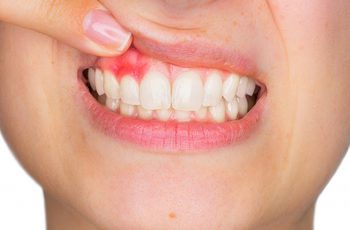Taking care of your tongue is an essential part of maintaining good oral hygiene. Your tongue plays a vital role in speaking, chewing, swallowing, and enjoying the taste of food. It is also home to a majority of the bacteria in your mouth. To ensure your tongue stays clean and healthy, follow these six daily habits.
Tongue Health
- Brush your tongue regularly along with your teeth, using gentle downward strokes.
- Consider using a tongue scraper to remove the mucus layer on your tongue.
- Rinse your mouth well after cleaning your tongue, and try using a warm saline solution for added freshness.
- Drinking green tea can help reduce bacteria in your mouth.
- Monitor the color of your tongue as it can be an indicator of your overall health.
- Stay hydrated by drinking plenty of water to wash away bacteria and food debris from your tongue and teeth.
By incorporating these habits into your daily routine, you can improve your tongue health and maintain a clean mouth. Let’s dive deeper into each of these tips and explore the benefits of proper tongue care.
Brushing Your Tongue
Brushing your tongue is an essential part of maintaining tongue health. Use a toothbrush with toothpaste and apply a small dab to the brush. Brush your tongue in a downward motion from the back of your mouth to the opening. This will help expel odor-causing bacteria. Remember to use gentle pressure to avoid damaging your tongue. Rinse your mouth with water after brushing.
Taking the time to brush your tongue properly can significantly improve your oral hygiene routine. By using a toothbrush with toothpaste, you can effectively target and remove odor-causing bacteria that can accumulate on the surface of your tongue. Applying gentle pressure is key to avoiding any discomfort or damage to your tongue while still effectively cleaning it.
Remember to rinse your mouth thoroughly with water after brushing your tongue to remove any loosened bacteria or residue. This will leave your mouth feeling clean and refreshed.
Using a Tongue Scraper
A tongue scraper is an effective tool for achieving a thorough cleaning of your tongue.
These scrapers are typically made from flexible, soft plastic, ensuring gentle yet effective scraping. To use a tongue scraper, start by positioning it at the back of your tongue. Then, with light pressure, gently scrape the surface of your tongue towards the front, paying special attention to the central area where the mucus layer tends to accumulate.
After each swipe, it’s essential to wash the scraper under warm water to remove any collected bacteria. This step helps ensure a hygienic cleaning process. Remember to use light pressure to avoid discomfort or soreness.
Using a tongue scraper can be a great addition to your oral hygiene routine, as it removes the mucus layer and promotes a cleaner and fresher mouth. Incorporating this practice into your daily oral care regimen can significantly contribute to maintaining proper tongue health.

By regularly using a tongue scraper, you can effectively remove the mucus layer from your tongue, providing a more thorough cleaning. Remember to wash the scraper under warm water after each use and apply light pressure to ensure a comfortable experience. The flexible plastic material of the scraper allows for gentle scraping, promoting a healthier tongue and fresher breath.
Rinsing Your Mouth
After cleaning your tongue, it’s important to rinse your mouth thoroughly with water. This simple step will help eliminate harmful bacteria and ensure a clean oral environment. Rinse for at least 30 seconds, swirling the water around your mouth to reach all areas, including the surface of your tongue.
If you want to enhance the cleansing process further, you can try using a warm saline solution. To create this solution, mix a teaspoon of salt with warm water. Swish the solution around your mouth for about a minute, making sure it reaches your tongue. The warm saline solution acts as a natural disinfectant, helping to keep harmful bacteria at bay and providing a refreshing sensation.
To maximize the benefits of rinsing your mouth, repeat this step at least twice a day, ideally after brushing your teeth and cleaning your tongue. By incorporating this practice into your daily oral hygiene routine, you’ll maintain a healthy mouth and minimize the presence of harmful bacteria.
Benefits of Drinking Green Tea
When it comes to maintaining tongue health, incorporating green tea into your daily routine can offer significant benefits. Not only is green tea a refreshing and delicious beverage, but it also possesses properties that help reduce bacteria in the mouth, including odor-causing bacteria. By consuming green tea regularly, you can effectively kill off the bacteria that lingers on your tongue, promoting fresher breath and improved oral hygiene.
Green tea contains natural compounds that have been found to have antimicrobial properties. These compounds help inhibit the growth of bacteria, preventing them from reproducing and spreading throughout the mouth. By reducing the amount of bacteria present, green tea contributes to overall tongue health and plays a vital role in maintaining a clean and fresh mouth.
In addition to its bacteria-fighting abilities, green tea offers numerous other health benefits. It is rich in antioxidants, which help protect against cell damage from free radicals and may even lower the risk of certain diseases. Green tea has been associated with improved brain function, increased fat burning, and reducing the risk of cardiovascular disease.
To reap the benefits of green tea for your tongue health, incorporate it into your daily routine. Enjoy a cup of green tea in the morning or as an afternoon pick-me-up. For maximum results, try drinking it without added sugar or sweeteners, as these can contribute to tooth decay and negate some of the oral health benefits.
Next, let’s explore the importance of monitoring the color of your tongue and how it can provide valuable insights into your overall health.
Monitoring the Color of Your Tongue
The color of your tongue can provide valuable insights into your health. A healthy tongue should be light pink with a slight white coating.
A definitively white tongue could indicate dehydration or a fungal infection.
A pale tongue may suggest a vitamin deficiency, while a bright red tongue could be a warning sign of an infection or a heart/blood disorder.
If you notice any abnormal coloring, it is advisable to consult a medical professional.

Importance of Staying Hydrated
Staying hydrated is crucial for maintaining overall health, and it also plays a significant role in tongue health. By drinking an adequate amount of water, you can effectively wash away bacteria and food debris from your tongue and teeth. It’s important to make hydration a priority by drinking plenty of water throughout the day to ensure good oral health.
When you stay hydrated, the water you consume helps to flush out harmful bacteria that may have accumulated on your tongue. It not only cleanses your tongue but also assists in removing food particles that can get stuck in the crevices. Drinking water acts as a natural cleanser, rinsing away the bacteria and debris and leaving your tongue refreshed.
In addition to keeping your tongue clean, staying hydrated has numerous other benefits for your overall health. Water helps maintain the balance of bodily fluids, regulates body temperature, supports digestion, and aids in nutrient absorption. It also contributes to healthy skin and helps prevent constipation. So, by prioritizing hydration, you’re not only looking after your tongue, but you’re also promoting your overall well-being.
Conclusion
Maintaining tongue health is crucial for overall oral hygiene. By incorporating simple habits like brushing your tongue, using a tongue scraper, rinsing your mouth, drinking green tea, monitoring tongue color, and staying hydrated, you can ensure a clean and healthy tongue.
Remember to pay attention to any abnormal symptoms or changes in your tongue’s appearance. Consult a medical professional if needed. With proper care and attention, you can enjoy the benefits of a cleaner and fresher mouth, promoting better oral health and overall well-being.
Take charge of your tongue health today and experience the positive impact it can have on your overall oral hygiene.




